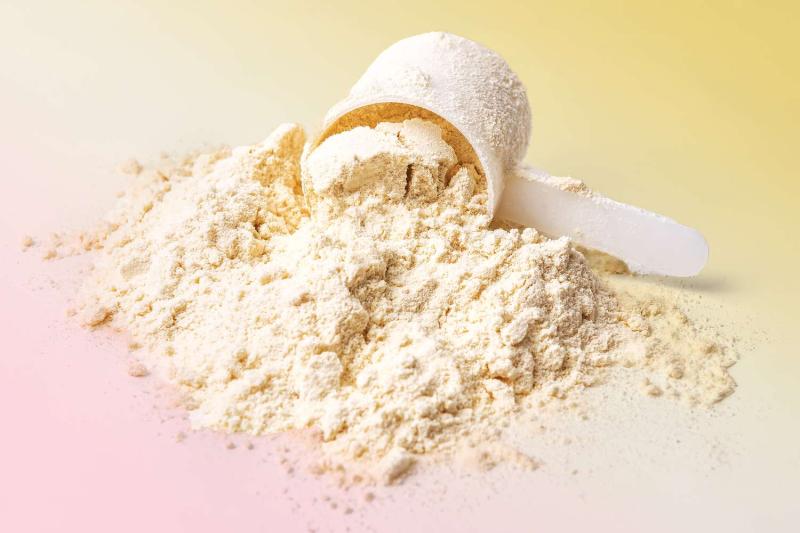Whey Protein Powder Manufacturing Plant Report 2025:
Whey protein powder is a high-quality protein supplement derived from the liquid by-product of cheese production. It is rich in essential amino acids, particularly branched-chain amino acids (BCAAs), which support muscle growth, recovery, and overall health. Whey protein is easily digestible, making it a preferred choice for athletes, fitness enthusiasts, and individuals seeking balanced nutrition. Available in various forms such as concentrate, isolate, and hydrolysate, it is widely used in shakes, bars, and fortified foods. Its nutritional benefits have made it one of the most popular protein supplements globally.
Establishing a whey protein powder plant requires access to raw whey, advanced filtration and drying equipment, skilled labor, and compliance with food safety regulations. Investments in packaging, storage, and efficient distribution are essential. Ensuring high-quality standards, energy efficiency, and innovative product development can significantly improve competitiveness and profitability.
Request for a Sample Report: https://www.imarcgroup.com/whey-protein-powder-manufacturing-plant-project-report/requestsample
IMARC Group’s report, titled “Whey Protein Powder Manufacturing Plant Project Report 2025: Industry Trends, Plant Setup, Machinery, Raw Materials, Investment Opportunities, Cost and Revenue,” provides a complete roadmap for setting up a whey protein powder manufacturing plant. It covers a comprehensive market overview to micro-level information such as unit operations involved, raw material requirements, utility requirements, infrastructure requirements, machinery and technology requirements, manpower requirements, packaging requirements, transportation requirements, etc.
This comprehensive business plan outlines every critical step involved in setting up a whey protein powder manufacturing plant successful unit – from understanding the industry landscape to planning for real-world challenges. It provides valuable insights into essential components such as whey protein powder manufacturing plant setup, cost breakdown, machinery cost, operating cost, raw material requirements, utility needs, infrastructure setup, and packaging logistics.
Whey Protein Powder Industry Outlook 2025:
The whey protein powder industry in 2025 is projected to grow steadily, driven by rising health awareness, fitness trends, and demand for protein-enriched diets. Expanding applications in sports nutrition, functional foods, and dietary supplements will further support market growth worldwide.
Key Insights for Whey Protein Powder Manufacturing Plant Setup:
Detailed Process Flow:
• Product Overview
• Unit Operations Involved
• Mass Balance and Raw Material Requirements
• Quality Assurance Criteria
• Technical Tests
Project Details, Requirements and Costs Involved:
• Land, Location and Site Development
• Plant Layout
• Machinery Requirements and Costs
• Raw Material Requirements and Costs
• Packaging Requirements and Costs
• Transportation Requirements and Costs
• Utility Requirements and Costs
• Human Resource Requirements and Costs
Capital Expenditure (CapEx) and Operational Expenditure (OpEx) Analysis:
Project Economics:
• Capital Investments
• Operating Costs
• Expenditure Projections
• Revenue Projections
• Taxation and Depreciation
• Profit Projections
• Financial Analysis
Profitability Analysis:
• Total Income
• Total Expenditure
• Gross Profit
• Gross Margin
• Net Profit
• Net Margin
Speak to Analyst for Customized Report:
https://www.imarcgroup.com/request?type=report&id=10228&flag=C
Key Cost Components of Setting Up a Whey Protein Powder Plant:
• Raw Material Procurement – Cost of sourcing liquid whey from dairy or cheese processing units.
• Land and Infrastructure – Expenses for land acquisition, plant construction, and utility installations.
• Machinery and Equipment – Investment in filtration systems, spray dryers, evaporators, separators, and packaging units.
• Labor and Workforce – Salaries, training, and recruitment of skilled technicians and support staff.
• Energy and Utilities – High consumption of electricity, steam, and water for processing and drying.
• Quality Control and Testing – Laboratory setup for microbiological and nutritional testing to meet food safety standards.
• Packaging Materials – Costs for pouches, jars, and labeling suitable for retail and bulk markets.
• Transportation and Logistics – Distribution of finished powder and collection of raw whey from dairies.
• Regulatory Compliance – Certifications, licensing, and adherence to food safety and export regulations.
• Maintenance and Overheads – Ongoing expenses for machinery servicing, insurance, and administrative operations.
Economic Trends Influencing Whey Protein Powder Plant Setup Costs 2025:
• Rising Health & Fitness Awareness – Growing demand for protein-rich diets and supplements increases market potential.
• Expanding Sports Nutrition Market – Higher consumption among athletes and gym-goers drives processing and production investments.
• Technological Advancements – Adoption of advanced filtration, drying, and packaging systems raises upfront costs but improves efficiency.
• Raw Material Price Fluctuations – Volatility in milk and cheese production impacts whey availability and procurement costs.
• Global Trade & Export Growth – Expanding demand in Asia-Pacific and Middle Eastern markets boosts investment in large-scale plants.
• Sustainability Requirements – Pressure to adopt eco-friendly and energy-efficient processes increases compliance-related expenses.
• Labor & Skill Development – Rising wages and demand for skilled technicians add to operational costs.
• E-commerce & Retail Expansion – Growth of online sales channels requires attractive packaging and branding investments.
• Energy Price Volatility – Dependence on electricity and steam makes costs sensitive to energy market fluctuations.
• Government Regulations – Strict food safety and labeling laws may increase compliance and certification costs.
Challenges and Considerations for Investors in Whey Protein Powder Plant Projects:
• High Capital Requirement – Significant investment needed for land, advanced machinery, and infrastructure.
• Raw Material Dependence – Reliance on consistent whey supply from dairy and cheese industries.
• Stringent Food Safety Standards – Compliance with global regulations (FSSAI, FDA, EFSA, etc.) requires continuous monitoring.
• Technology-Intensive Processing – Need for advanced filtration and drying systems to ensure purity and quality.
• Energy-Intensive Operations – High electricity, steam, and water usage increase operational costs.
• Market Competition – Presence of established global brands puts pressure on new entrants.
• Consumer Preferences – Shifting trends toward plant-based protein may impact long-term demand.
• Supply Chain & Logistics – Efficient collection of raw whey and timely distribution of finished products is critical.
• Product Shelf Life – Proper storage and packaging are necessary to maintain freshness and prevent contamination.
• Skilled Workforce Requirement – Need for trained personnel in food technology, quality testing, and process management.
Buy Now:
https://www.imarcgroup.com/checkout?id=10228&method=1911
Conclusion:
Investing in a whey protein powder plant offers promising opportunities as global demand for healthy, gluten-free, and sustainable foods continues to rise. With strong government support, growing export potential, and consumer preference for nutrient-rich diets, the whey protein powder industry is poised for long-term growth. However, investors must carefully address challenges such as raw material availability, technological requirements, quality control, and competition with other staple grains. By adopting modern processing technologies, ensuring compliance with food safety standards, and building strong supply chains, whey protein powder plant projects can achieve profitability while contributing to healthier diets and sustainable agriculture.
About Us:
IMARC Group is a global management consulting firm that helps the world’s most ambitious changemakers to create a lasting impact. The company excel in understanding its client’s business priorities and delivering tailored solutions that drive meaningful outcomes. We provide a comprehensive suite of market entry and expansion services. Our offerings include thorough market assessment, feasibility studies, company incorporation assistance, factory setup support, regulatory approvals and licensing navigation, branding, marketing and sales strategies, competitive landscape, and benchmarking analyses, pricing and cost research, and procurement research.
Contact Us:
IMARC Group
134 N 4th St. Brooklyn, NY 11249, USA
Email: sales@imarcgroup.com
Tel No:(D) +91 120 433 0800
United States: (+1-201971-6302)
This release was published on openPR.
Source link
Share this article:












